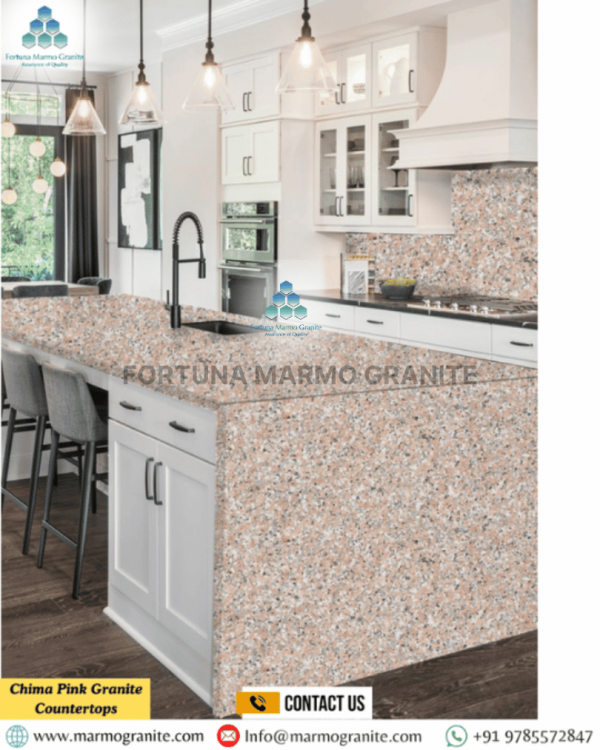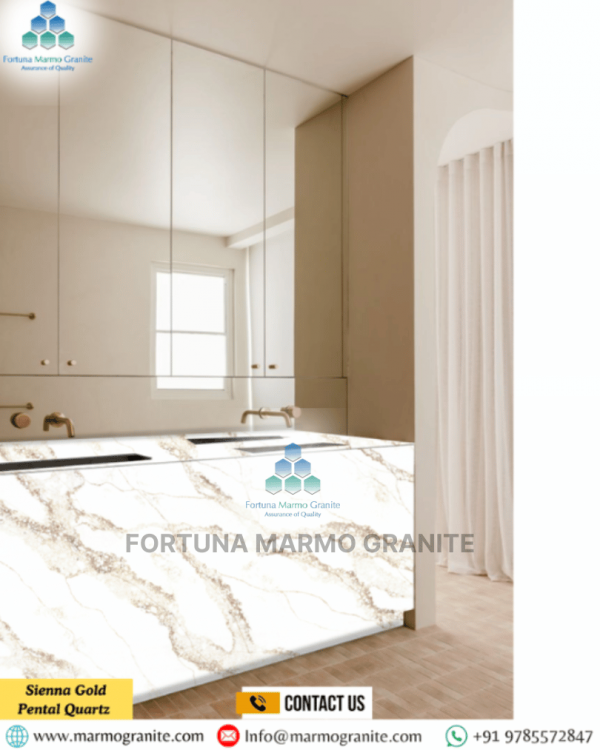Granite vs. Quartz Countertops: Which One Wins on Durability?
Granite vs. Quartz Countertops When renovating a kitchen or bathroom, few decisions are as important as choosing the right countertop material. Among the many options, granite and quartz stand out for their elegance, functionality, and ability to transform a space. A natural stone formed over millions of years under intense heat and pressure, is prized for its unique patterns, earthy beauty, and remarkable strength. It withstands hot pots, heavy wear, and daily kitchen use with ease, making it a time-tested choice for durability. Quartz, an engineered stone made from natural quartz crystals mixed with resins and pigments, offers a consistent appearance, superior hardness, and a non-porous surface.
This makes it highly resistant to stains, bacteria, and moisture damage. Unlike granite, quartz requires no sealing and is easier to maintain, appealing to busy households that prioritize convenience. Excels in heat resistance, giving it an edge in certain situations. Both materials have their supporters, but the key is matching the countertop's features to your lifestyle, usage patterns, and design vision. This comparison will help you make an informed choice—whether you favor granite's timeless natural beauty or quartz's polished high-performance look.
The Contenders: An Introduction
Granite: A naturally occurring igneous rock, granite is quarried from the earth in massive slabs. It's composed primarily of quartz and feldspar, with small amounts of mica and other minerals. Its unique veining and flecks are a result of the specific mineral composition and the geological processes that formed it over millions of years. Every slab of granite is unique, offering a one-of-a-kind aesthetic.
Quartz: Unlike granite, quartz countertops are engineered. They are manufactured from crushed quartz (typically 90-95%) mixed with resins, polymers, and pigments. This manufacturing process allows for a wide range of colors and patterns, including those that mimic natural stone. The resins bind the quartz particles together, creating a non-porous and highly durable surface.
Round 1: Scratch Resistance
Granite: Exceptionally hard, ranking around 6 to 7 on the Mohs scale of mineral hardness (where 10 is the hardest, like diamond). This inherent hardness makes it highly resistant to scratches from knives, pots, and pans during normal kitchen activities. However, it's not entirely impervious. Extremely sharp objects, ceramic dishes, or abrasive cleaners can potentially scratch its surface, especially if not sealed properly. A good quality granite will stand up to a lot of abuse, but it's always wise to use cutting boards.
Quartz: Engineered quartz is highly scratch-resistant thanks to its high quartz content (quartz rates 7 on the Mohs scale) and the binding resins. Its manufacturing process creates a uniform, exceptionally hard surface that resists scratches from everyday kitchen utensils. Many manufacturers highlight quartz's superior scratch resistance compared to granite. While quartz is very durable, it is not completely scratch-proof. Using cutting boards is always recommended to keep your countertop looking pristine.
Round 2: Heat Resistance
Granite: As a natural stone formed under immense heat and pressure, granite possesses excellent heat resistance. You can typically place hot pots and pans directly on a granite surface without fear of damage, though sudden, extreme temperature changes (thermal shock) could, in rare cases, cause cracking. It's generally recommended to still use trivets for very hot items to err on the side of caution and to protect any sealer that might be present.
Quartz: This is where the engineered nature of quartz presents a minor drawback. While highly durable, the resins used to bind the quartz particles are susceptible to heat damage. Prolonged exposure to high temperatures (e.g., placing a hot pan directly from the stove onto the surface) can cause the resin to scorch, discolor, or even melt, leading to permanent damage. This manifests as white marks, yellowing, or even bubbling. Therefore, using trivets and hot pads is absolutely essential when working with quartz countertops.
Round 3: Stain Resistance
Granite: Being a porous natural stone, granite is susceptible to staining if not properly sealed. Liquids like wine, oil, coffee, and even some highly pigmented foods can penetrate the surface and leave a mark. Regular sealing (typically annually, though some newer sealers last longer) is crucial to maintain its stain resistance. Once sealed, it performs very well, but neglecting this maintenance can lead to frustrating stains.
Quartz: This is a major advantage for quartz. Thanks to the non-porous nature created by the resins, quartz is highly stain-resistant. Liquids and food particles cannot easily penetrate the surface, making cleanup a breeze. This means no sealing is required, significantly reducing maintenance. Spills can generally be wiped away with a damp cloth and mild soap.
Round 4: Chip and Crack Resistance
Granite: While incredibly hard, granite can be susceptible to chipping, particularly around edges and corners, if struck with significant force. A heavy cast-iron pan dropped directly on an edge could cause a chip. Cracks are less common but can occur from severe impacts or if the countertop is installed over an uneven base. Repairs for chips and cracks in granite are possible but may require professional attention.
Quartz: Quartz is also very durable and resistant to chipping and cracking due to its engineered uniformity. The resins provide a degree of flexibility that can make it slightly less prone to catastrophic cracking than granite under certain conditions. However, like granite, it's not indestructible. Heavy impacts, especially on edges, can still cause chips. Repairs are also possible for quartz, often by filling with a color-matched epoxy.
Round 5: Maintenance and Long-Term Durability
Granite: The primary maintenance for granite is sealing. Depending on the type of granite and the sealer used, this can range from every six months to every few years. Neglecting sealing can lead to staining and potential bacterial growth in the pores. Cleaning is generally easy with mild soap and water or specialized granite cleaners. With proper care, a granite countertop can last a lifetime and even improve with age, developing a beautiful patina.
Quartz: One of quartz's biggest selling points is its low maintenance. No sealing is ever required. Cleaning is simple with a damp cloth and mild detergent. Its non-porous surface makes it hygienic and resistant to mold and mildew. This "set it and forget it" aspect makes it very appealing for busy households. Its engineered nature means its durability is consistent across the entire slab.
The Undisputed Champion?
So, after all these rounds, which material wins on durability? It's not as simple as declaring a single, outright victor. The "winner" depends heavily on your lifestyle, priorities, and tolerance for maintenance.
For ultimate heat resistance and a naturally unique aesthetic, granite remains a top choice. Serious cooks who frequently place hot pans directly on the countertop—and don't mind occasional sealing—will appreciate granite's ability to withstand high temperatures without damage. Its natural variations also ensure that every countertop is one-of-a-kind.
Superior stain resistance, scratch resistance, and low maintenance, quartz is the clear front-runner. If you value easy cleaning, a non-porous surface for hygiene, and a worry-free countertop that doesn't require sealing, quartz is the ideal option. Its consistent appearance and wide range of colors make it highly versatile for virtually any design scheme.
In summary:
| Feature | Granite | Quartz |
|---|---|---|
| Scratch Resistance | Very good (but not entirely impervious) | Excellent (often superior) |
| Heat Resistance | Excellent (natural tolerance) | Good (but susceptible to resin scorching) |
| Stain Resistance | Good (if properly sealed) | Excellent (non-porous) |
| Chip/Crack Resist | Good (can chip on edges with heavy impact) | Very good (uniform, slightly more resilient) |
| Maintenance | Requires periodic sealing | No sealing required (low maintenance) |
| Aesthetics | Natural, unique patterns | Engineered, consistent, wide color range |
| Price | Varies widely by type and rarity | Generally comparable to mid-to-high end granite |
Conclusion
Indian Granite Supplier the choice between granite and quartz countertops, especially in terms of durability, ultimately depends on your specific needs, lifestyle, and preferences—but both materials have proven to be outstanding options for modern and traditional interiors alike. Granite vs. Quartz Countertops Granite, as a natural stone formed through intense geological processes, is renowned for its impressive heat resistance, natural hardness, and the unique character it brings to any space through its distinctive veining and color variations. Granite vs. Quartz Countertops Granite vs. Quartz Countertops It handles hot pots, scratches, and heavy usage with ease, making it a top contender for kitchens and outdoor areas. Quartz, being an engineered stone, offers a more uniform appearance and stands out for its exceptional resistance to stains, bacteria, and impact, thanks to its non-porous nature and consistent manufacturing process.
At Fortuna Marmo Granite, we bring decades of expertise in sourcing, manufacturing, and supplying the finest quality granite and quartz surfaces across the globe. Our experienced team is dedicated to helping customers understand the nuances of each material, ensuring that you choose a countertop that not only complements your interior vision but also offers reliable durability for years to come. Granite vs. Quartz Countertops Whether you lean towards the rugged natural charm of granite or the refined resilience of quartz, Fortuna Marmo Granite is your trusted partner for premium stone solutions that blend strength, beauty, and long-term value with unmatched craftsmanship.



